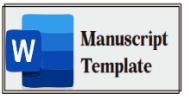FINANCIAL INCLUSION AND MUQASAH AR-RIBHI IN REPAYMENT FINANCING IN BMT
Abstract
Keywords
Full Text:
PDFReferences
Department of Access and MSME Development of Bank Indonesia. (2014). Financial Inclusive Booklet. Jakarta.
Fatwa DSN-MUI No. 23/DSN-MUI/III/2002.
Ikatan Akuntansi Indonesia, Standar Akuntansi Keuangan Syariah Per 1 Januari 2019.
Masterplan Ekonomi Syariah Indonesia 2019-2024, KNEKS.
Maftukhatusolikhah, dan Dwi Budiarto. (2019). Pemberdayaan Ekonomi Perempuan Perspektif Gender Dan Ekonomi Islam: Studi Kasus Akses Pengusaha Umkm Perempuan Terhadap Lembaga Keuangan Syariah Bmt Di Palembang, I-FINANCE Vol.05 No.01.
Mardani. (2017). Aspek Hukum Lembaga Keuangan Syariah di Indonesia, Jakarta: Kencana.
Huda, Nurul dan Heykal, Mohamad. (2013). Lembaga Keuangan Islam: Tinjauan Teoretis dan Praktis. Jakarta: Kencana.
Rivai, Veithzal. (2008). Islamic Banking. Jakarta: Bumi Aksara.
Tlemsani, I., Marir, F. and Majdalawieh, M. (2020), "Screening of Murabaha business process through Quran and hadith: a text mining analysis", Journal of Islamic Accounting and Business Research, Vol. 11 No. 9, pp. 1889-1905.
https://www.ojk.go.id/id/kanal/syariah/berita-dankegiatan/publikasi/Documents/Pages/Buku-Standar-Produk-Perbankan-Syariah Murabahah/Buku%20Standar%20Produk%20Murabahah.pdf)
https://www.ekon.go.id/publikasi/detail/3141/dukung-inklusi-keuangan-baitul-maal-wa-tamwil-bmt-sinergi-dengan-industri-keuangan-syariah
DOI: http://dx.doi.org/10.15548/al-masraf.v6i1.387
Refbacks
- There are currently no refbacks.

This work is licensed under a Creative Commons Attribution-NonCommercial-ShareAlike 4.0 International License.
View My Stats

